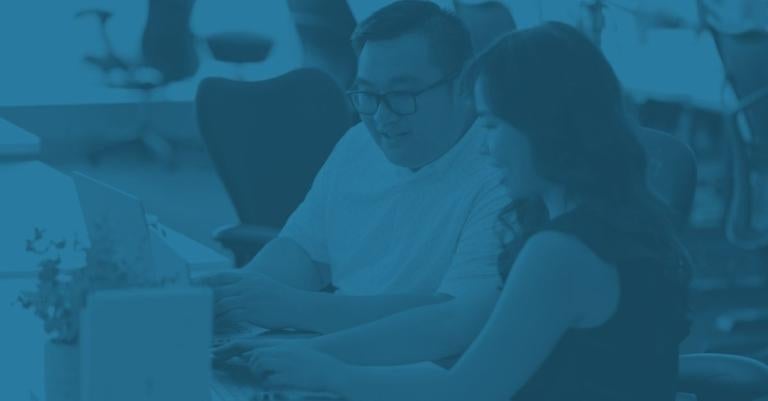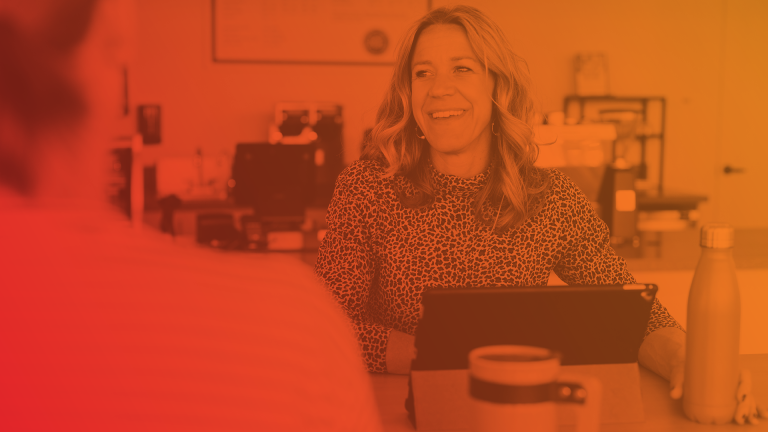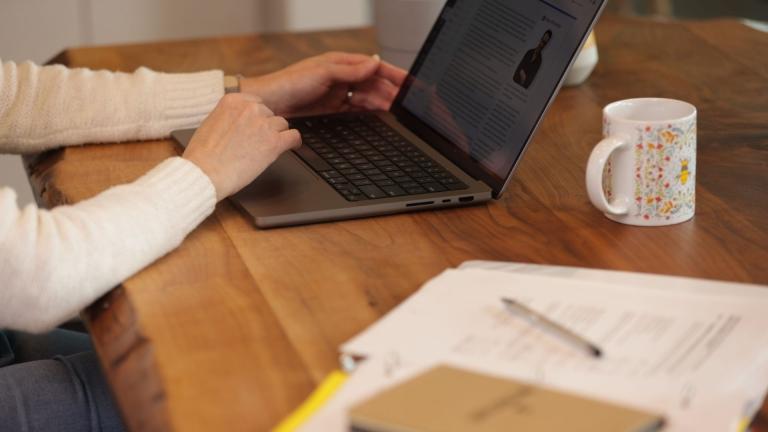
Jóhanna Birna Bjartmarsdóttir is an Icelandic student at the University of Florida studying education science and health promotion. She is also the founder and CEO of HARTS, an Icelandic-based ed-tech consulting company offering solutions to educators and professionals to support high-quality, accessible educational environments. In this interview, Jóhanna shares her unique journey into education and entrepreneurship.
What obstacles did you face when pursuing Higher Education, and how did you overcome them?
Growing up, teachers told me that I wasn’t suited for academia because of my different learning and physical abilities, and I didn’t have a role model to prove otherwise. I spent some time in a wheelchair due to physical sickness, and I’ve also been diagnosed with autism, dyslexia and ADHD.
Upon hearing about my experience, a family friend of mine and academic, Dr. Angela Linder at the University of Florida (UF), suggested I look into Education Science. Initially, I was hesitant because of my negative past experiences in traditional classrooms. When I heard that the program was entirely online - I was elated. And so, I transferred to UF as an Education Science Major.
I didn’t even know entirely remote online learning was a possibility, but it’s opened up so many doors and has been a catalyst for all of my achievements so far.
What would you say are the biggest hurdles to accessibility in education?
A significant barrier is the lack of awareness and understanding. Many people still look down on learning disabilities. In Iceland, people often assume that education is accessible because it’s affordable, but they overlook the systemic barriers that prevent students with disabilities from thriving. There needs to be more awareness and understanding of the value that these students bring.
A Universal Design for Learning (UDL) is also crucial and often overlooked. If a course only offers one way to complete assignments, say, through essays or lectures — it excludes many learners. Cognitive overload is another issue when information isn’t presented in an accessible way. Instructional designers should always have inclusivity at the forefront, ensuring that courses are accessible to all learners. This can make a huge impact on educational environments.
In the US, specifically at the University of Florida, they’ve done a phenomenal job. I feel honoured to be part of that system.
In Europe, we’re lagging when it comes to delivering accessible education. Many people here don’t even know what instructional design is, and there isn’t even a word for it in Icelandic.
There’s this unfair expectation that teachers should be experts in everything — teaching, pedagogy, and technology. That’s where instructional designers can make a huge difference.
What role do you think assistive technology and AI can play in improving accessibility in education?
Assistive technology is vital. I rely on speech-to-text software like Speechify and grammar correction tools like Grammarly, which help me focus on my actual competencies.
AI has the potential to be a great equaliser. It can help create accessible learning environments, generate translations, and assist students with disabilities.
But it’s important to use these technologies to enhance critical thinking. AI doesn’t have to be seen as a threat — it can push students to engage with material in a deeper, more analytical way.
What would you say to educators looking to advocate for better accessibility?
I’d encourage educators to leverage educational technology like Canvas VLE, especially for the sake of students like me who rely on online learning to connect with educators and with course material. I’d also encourage educators to create clear, concise scripts for their lectures, which can be recorded and broken down into manageable segments and uploaded to a Virtual Learning Environment. This allows students to engage with the material at their own pace, enriching their learning experience.
Above all, get curious about the experiences of students with disabilities. Talk to them and understand the barriers they face. Advocate for systematic changes within your institution to promote diversity and inclusion. It’s not just about accommodating these students — it’s about valuing their unique perspectives and contributions.
Tell us about HARTS, your accessibility in education consultancy
When I was told academia wasn’t for me - I was angry, but that anger turned into purpose. I decided to ensure that no one else would have to go through what I did, just because they had different accessibility needs.
I wanted to use my experience and my education to help create an inclusive, accessible learning environment for students like me — those with dyslexia, ADHD, autism, and physical disabilities, and that’s why I created HARTS. At HARTS, our goal is to contribute to systemic changes within the education system.
Our instructional designers have over 15 years of experience using Canvas VLE to create engaging, accessible learning environments. We aim to support teachers in delivering content seamlessly to all students by creating high-quality templates and environments that align with best practices in education.
We’re currently developing an introduction to accessibility course called Accessibility Essentials, which will be available on Canvas VLE. This course is free and designed to explain the importance of accessibility to those who might not fully understand it yet.
There’s a lot of work that needs to be done, and my fight for accessible education is just beginning. My ultimate vision is to see every teacher paired with an instructional designer to create high-quality, accessible courses. We need a systematic approach to change the education environment, and I believe it’s possible. We just need the will and awareness to make it happen.
Jóhanna will be interviewed at CanvasCon Europe 2024 by Martin Bean CBE. You can still get your tickets here.
Related Content
 canvas-biz-investment.jpg
canvas-biz-investment.jpgBlogs
 Upskilling and Reskilling Preparing Students for a Modernized Workforce.png
Upskilling and Reskilling Preparing Students for a Modernized Workforce.pngBlogs
 skills-forward.jpg
skills-forward.jpgBlogs
